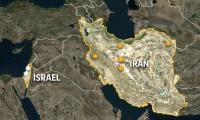Economic planning: Why Pakistan needs a humane budget
LAHORE: Next years’ budget requires not only the best economic planner, but a humane face as well that carves out optimum for the poor from the limited resources available in the country – a person capable of resisting political compromises.
Does any member of the current economic team have the credentials anywhere near that description? All members of the economic team are from affluent background.
None of them have in their lifetime faced any financial crunch. They could never appreciate the miseries of hunger, want and shame that a poor feels.
Dr Hafeez Pasha is an internationally acclaimed economist – for decades he’s been the darling of IMF (which is a villain for poor). Razak Dawood is a business tycoon having interest in one of the largest engineering and construction firms of the country.
Hammad Azhar is the son of an industrial family that helped out the Sharif family after their mills were nationalised by Zulfiqar Ali Bhutto.
Khusroo Bakhtiar belongs to a landlord family of South Punjab that has entered the business field in a big way in a short time.
Asad Umar is the son of a former army general, who before joining PTI was the highest paid private sector executive of a business group led by Razzak Dawood’s uncle.
They are all qualified persons, but were born with a silver spoon having no experience of the life that is lived by the poor people of this country.
Their policies have never been pro poor, but in order to placate the downtrodden they did announce public appeasing measures like subsidies that they know are counterproductive and ultimately bring more problems for the poor.
The taxes they impose are mostly indirect that are implicit tax on the poor. The economic team shows hesitation in withdrawing concessions and protection granted to the businesses in Pakistan.
Government wants to save precious foreign exchange, but allows import of used cars at concessional duties. The import of luxurious used electric cars is allowed at even higher concession. Does this not involve foreign exchange?
Sugar import is subjected to normal duty plus regulatory duty to let the sugar mafia enjoy monopoly in domestic market. If sugar import is allowed free of duty, it would save hundreds of billion rupees of domestic consumers.
Foreign exchange consumed would be less than what we incur on used car imports. Even now when the sugar prices have skyrocketed the government has not allowed duty free sugar import.
What the government has done in case of used car imports, can also be applied to the sugar industry.
The present economic team failed to create private sector jobs because of its flawed policies even before the pandemic hit the country. Instead the jobs were being cut by the businessmen.
Since the pandemic, job loss has accelerated to the highest ever level. But then job loss during a pandemic is a global phenomenon and we cannot blame the economic team for this debacle.
They are duty bound to assess the situation and find out ways to create large number of jobs immediately.
The two major avenues of job creation are construction (mainly for unskilled workers) and value-added apparel in textile sector (for skilled and semi-skilled workers).
Next budget should ensure to remove all bottlenecks hampering growth of these sectors. Government announced some incentives for the construction industry about two months back. However, the sector failed to respond probably due to Ramazan.
The government experts should revisit their policy and identify the flaws. The construction sector package offered more incentives for the corporate builders.
The low end contractors and those aspiring for building their own house should be encouraged by drastically reducing stamp duty, and transfer fees for plots up to 300 square yards. This will spur construction activities.
In fact, the savings from transfer fee and stamp duty would be enough to allow buyers to build low cost two room houses to shift from rented property.
The apparel sector has been badly hit after the pandemic. Many brands have cancelled confirmed orders.
They have withheld the payments of exporters, while some brands have filed for bankruptcy inflicting heavy losses on exporters.
Bangladesh government led by their prime minister is fighting the case of their exporters with foreign buyers and their governments. They are also awakening the civil society in these economies to force brands to release the withheld payments.
An international survey revealed that 35 major brands have not released the payment of 40 percent of their suppliers. The next budget should concentrate only on the apparel sector in textiles.
We have to save it and facilitate it to create large number of jobs. Pakistan government through its commercial councillors and commerce advisor should lobby for the readymade garments and knitwear industry of Pakistan. The refunds of value-added textile sector should be released on priority to ease their financials.
-
 Nvidia’s New Specialized Chip Aims To Accelerate AI Processing Speeds
Nvidia’s New Specialized Chip Aims To Accelerate AI Processing Speeds -
 Demi Moore Was Left With ‘intense’ Illness After ‘The Substance’
Demi Moore Was Left With ‘intense’ Illness After ‘The Substance’ -
 How AI Can Read Your Thoughts Without You Speaking?
How AI Can Read Your Thoughts Without You Speaking? -
 Elon Musk’s Grok Faces Scrutiny From Federal Agencies Amid Pentagon-Anthropic Standoff–Here’s Why
Elon Musk’s Grok Faces Scrutiny From Federal Agencies Amid Pentagon-Anthropic Standoff–Here’s Why -
 ‘I Saw Nothing’: Bill Clinton Denies Knowledge Of Epstein’s Crimes In House Testimony
‘I Saw Nothing’: Bill Clinton Denies Knowledge Of Epstein’s Crimes In House Testimony -
 Jim Carrey Makes Surprising Confession About Rarely Seen Girlfriend Min Ah
Jim Carrey Makes Surprising Confession About Rarely Seen Girlfriend Min Ah -
 How Michael J. Fox Helped Harrison Ford With His Parkinson's Monologue
How Michael J. Fox Helped Harrison Ford With His Parkinson's Monologue -
 AI Safety Battle: Anthropic Fires Back At Pentagon After US Military Flags It ‘supply Chain Risk’
AI Safety Battle: Anthropic Fires Back At Pentagon After US Military Flags It ‘supply Chain Risk’ -
 OKC Vs Nuggets: NBA MVP Shai Gilgeous-Alexander Scores 36 In Fiery Overtime Win
OKC Vs Nuggets: NBA MVP Shai Gilgeous-Alexander Scores 36 In Fiery Overtime Win -
 Eric Dane's Biggest Regret Comes To Light Following Days Of His Death
Eric Dane's Biggest Regret Comes To Light Following Days Of His Death -
 Israel Launches Attack On Iran's Capital And Declares State Of Emergency
Israel Launches Attack On Iran's Capital And Declares State Of Emergency -
 At Least 15 Dead After Military Plane Carrying New Banknotes Plunges Out Of Control In Bolivia
At Least 15 Dead After Military Plane Carrying New Banknotes Plunges Out Of Control In Bolivia -
 OpenAI Partners With Pentagon After Trump Bans Anthropic AI
OpenAI Partners With Pentagon After Trump Bans Anthropic AI -
 Trump Orders Federal Agencies To Stop Using Anthropic AI Tools
Trump Orders Federal Agencies To Stop Using Anthropic AI Tools -
 Shocking Details Emerge In Martin Short’s Daughter Katherine's Death Investigation: 'Kept To Herself'
Shocking Details Emerge In Martin Short’s Daughter Katherine's Death Investigation: 'Kept To Herself' -
 Daniel Serafini Gets Life Without Parole In In-laws Murder And Attempted Murder Case
Daniel Serafini Gets Life Without Parole In In-laws Murder And Attempted Murder Case



